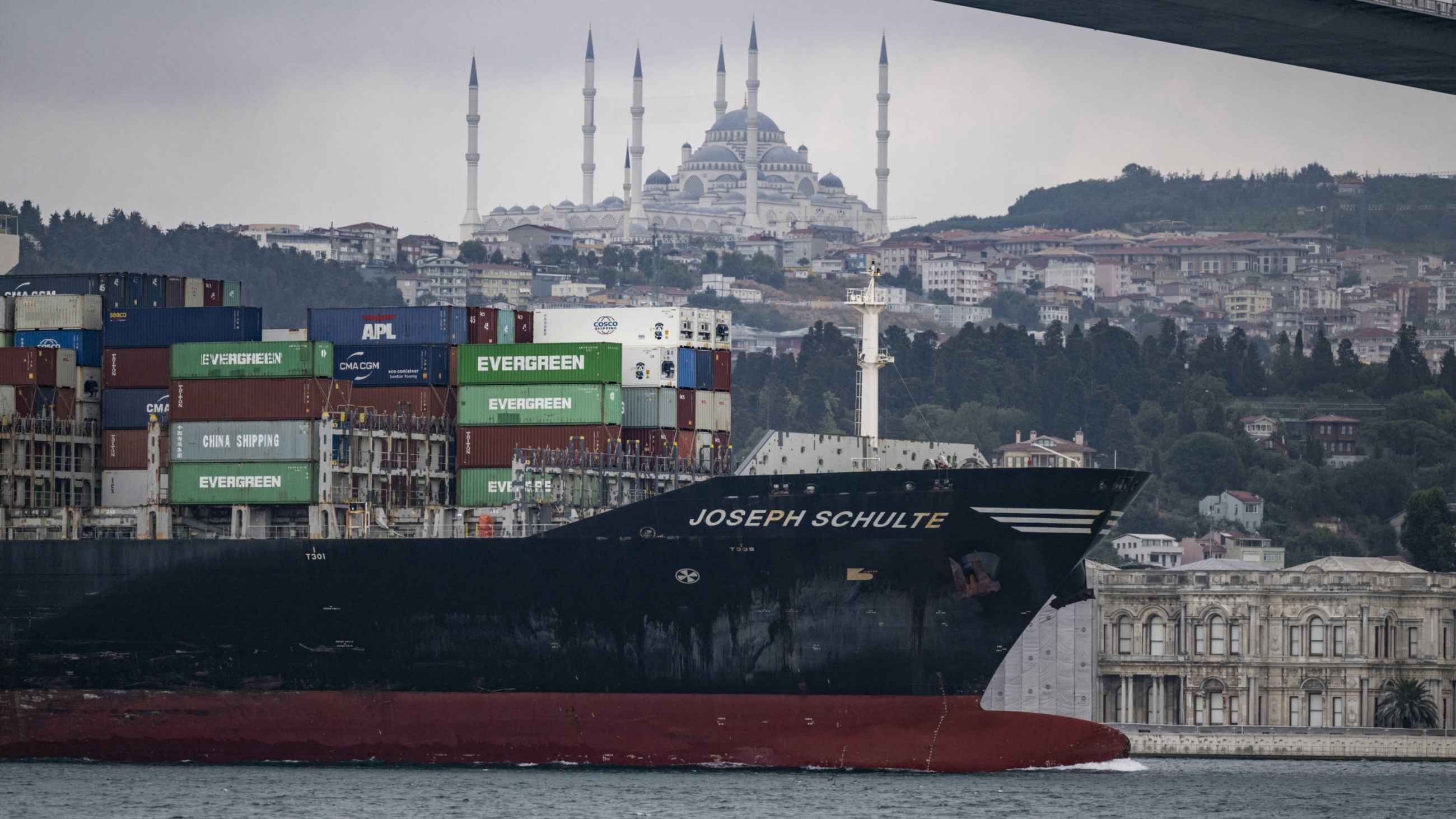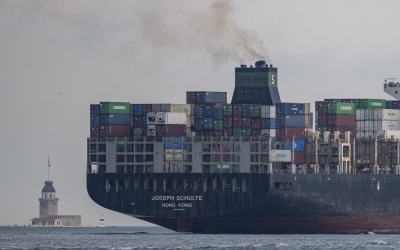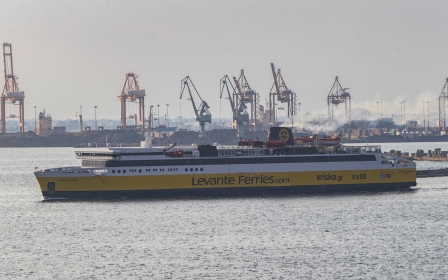Turkey moves to close Palestine loophole to end trade with Israel

Turkey has taken steps to close a loophole that has allowed Turkish businesses to bypass its trade embargo on Israel by delivering goods to occupied Palestine, three sources with knowledge of the matter told Middle East Eye.
Ankara suspended its $8bn bilateral trade with Israel in May in response to Israel’s war on Gaza. This has led Turkish companies to use third countries, such as Greece, to ship goods to Israel.
One increasingly exploited route was through Palestine. In September, MEE reported that businesses were creating documents indicating Palestine as the final destination for goods.
However, after docking at Israeli ports like Ashdod, the goods would be diverted to Israeli buyers, facilitated by Palestinian intermediaries.
This ongoing trade placed significant pressure on the Turkish government, with activists in major Turkish ports, such as Haydarpasa in Istanbul, staging ship raids to halt the indirect trade.
New MEE newsletter: Jerusalem Dispatch
Sign up to get the latest insights and analysis on Israel-Palestine, alongside Turkey Unpacked and other MEE newsletters
Local journalists also used social media to document these transactions, exposing the continued parallel trade between Turkey and Israel.
In response, the Turkish government has introduced a new three-stage process for companies exporting to Palestine.
First, Palestinian companies seeking to import Turkish goods must have their pro forma invoices approved by the Palestinian Ministry of Economy. The ministry then informs Turkey's Ministry of Trade about the approved invoice. Finally, both the Palestinian and Turkish documents and approvals are submitted to Turkey's exporters’ associations, which confirms and validates the trade.
This new process, enforced since 23 October, has temporarily disrupted trade. A Turkish exporter told MEE that Palestinian companies are struggling to obtain the necessary documentation under the new regulations.
Another Turkish businessman involved in the trade said that although the government announced the changes in June, public pressure following the recent revelations led to their enforcement now.
Israeli businesses registered under the PA
According to data from the Turkish Exporters' Assembly (TIM), Turkish exports to Palestine surged by 542.5 percent in the first 10 months of the year, rising from $102m to $661m. In October alone, exports to Palestine increased by 672 percent year-on-year, from $12m to $95m.
Steel was the most significant export in October, with a staggering 5,400 percent increase compared to the same month last year, rising from $459,000 to $25m.
The export of chemical substances and products also saw a dramatic rise, increasing by 8,575 percent year-on-year, from $143,000 to $12m.
A third source, speaking to MEE on condition of anonymity, revealed that Israeli companies have even been establishing businesses registered under the Palestinian Authority to continue these transactions.
It remains unclear how long the new Turkish measures will be effective in halting the flow of goods to Israel.
"The Turkish government lacks an agency dedicated to monitoring embargo violations, so it’s unlikely that Ankara will be able to fully stop this trade," the source said.
"Companies could even prepare paperwork for exports destined for East Asia but still manage to reroute the goods to Israel."
Others suggested that goods arriving in Israel, ostensibly for Palestinian businesses, could still be sold to Israeli companies with minimal paperwork.
Meanwhile, the Palestinian government has urged Ankara to keep trade routes open with Ramallah, emphasising that Turkish goods can only reach Palestinian markets through Palestinian companies since Turkey halted trade with Israel.
"After Turkey banned exports to Israel, trade was restricted to Palestine, resulting in an increase in Turkish exports to Palestine," Mohammed al-Amour, the Palestinian national economy minister, told Anadolu Agency on Monday.
"Previously, some of our imports from Turkey came via the Israeli market and were facilitated by Israeli traders."
Amour added that his government has asked Turkey to exempt Palestine from the trade embargo imposed since 2 May and to implement special regulations that prevent the misuse of trade routes in favour of Israel.
Middle East Eye delivers independent and unrivalled coverage and analysis of the Middle East, North Africa and beyond. To learn more about republishing this content and the associated fees, please fill out this form. More about MEE can be found here.





